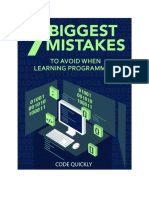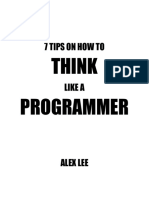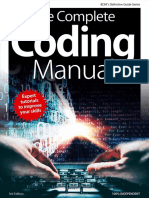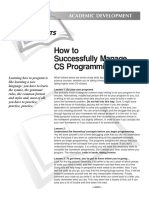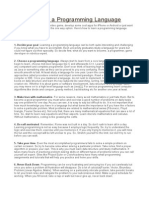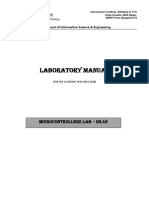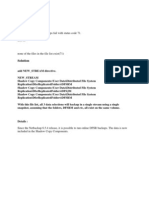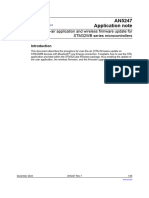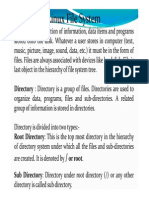Becoming a programmer is an exciting journey that can lead to many rewarding opportunities.
Programmers are the people who create the software and applications we use every day, from
video games to mobile apps and websites. Learning to code and mastering programming skills
can open doors in technology, business, science, and even the arts. For someone starting out,
becoming a programmer can seem challenging, but with the right approach and persistence,
anyone can learn to code and succeed in this field.
The first step in becoming a programmer is choosing a programming language to start with.
Popular beginner-friendly languages include Python, JavaScript, and Java. Python, for example,
is widely used in web development, data science, and automation because of its simplicity and
readability. JavaScript is essential for building websites, while Java is often used in mobile apps.
It’s best to start with one language to avoid feeling overwhelmed and to build confidence in
coding.
After selecting a language, it’s important to focus on learning the basics. These basics include
understanding variables, data types, loops, and conditional statements, which are the building
blocks of any program. There are plenty of free resources online, such as tutorials, courses, and
videos, that can teach you these fundamentals. Websites like Codecademy, freeCodeCamp,
and Khan Academy offer step-by-step guides and exercises to help beginners understand these
essential concepts.
Once you’ve learned the basics, practice is key to becoming a skilled programmer. The more
you code, the better you will become at solving problems and writing efficient programs.
Practicing by completing coding exercises, challenges, or even simple projects helps you apply
what you’ve learned and builds confidence. You can find coding challenges on platforms like
LeetCode, HackerRank, and CodeSignal, where you can improve your skills and even compete
with other programmers.
To further develop as a programmer, try working on small projects that interest you. For
example, you could create a simple calculator, a personal website, or a basic game. These
projects allow you to see how different parts of a program come together to form a complete
application. By working on projects, you not only learn new skills but also get a chance to
showcase your work. As you gain more experience, you can take on more complex projects,
which will help you understand advanced programming concepts.
A key skill for any programmer is problem-solving. Coding is essentially about solving
problems through logic and creativity. When you’re coding, you’ll often encounter bugs or issues
that require careful thinking to resolve. Developing problem-solving skills involves patience and
a willingness to tackle challenges head-on. Over time, you’ll become better at breaking down
problems into smaller, manageable pieces, making them easier to solve.
� As you progress, learning to debug is essential. Debugging is the process of identifying and
fixing errors in your code. Everyone makes mistakes while coding, even experienced
programmers, so it’s important to learn how to use debugging tools and techniques. Many
coding environments, or IDEs, have built-in tools to help you find and fix issues. Learning to
read error messages and understanding how your code works step-by-step are critical skills that
will save you time and frustration in the long run.
It’s also important to understand the importance of algorithms and data structures. Algorithms
are step-by-step instructions for solving specific problems, while data structures organize data in
ways that make it easier to work with. Learning these concepts can make your programs more
efficient and improve your problem-solving abilities. Start with basic data structures like arrays
and linked lists, and move on to algorithms like sorting and searching.
Joining a coding community can make the learning process more enjoyable and less isolating.
Communities provide a space where you can ask questions, share projects, and learn from
others. Websites like GitHub, Stack Overflow, and Reddit are great for finding advice and
resources, and they also allow you to collaborate on projects with other programmers. Being
part of a community can keep you motivated, as you’ll have others to turn to when you’re stuck
or looking for feedback.
Reading and following code written by others is another helpful way to improve. Open-source
projects, which are publicly available on platforms like GitHub, let you study the code created by
experienced programmers. By reading and even contributing to these projects, you can learn
new coding techniques, see how professionals structure their code, and understand how larger
projects are built. This practice will help you learn best practices and become more skilled at
writing clean and organized code.
As you continue to learn, it’s beneficial to document your work. Keeping track of your code,
what you learned, and any challenges you faced can be incredibly helpful. You might start a
programming journal or create a blog to share your journey. Documenting your progress not
only helps you remember what you’ve learned but can also be a valuable resource for others
who are learning. It’s also a great way to build an online presence and showcase your growth
as a programmer.
While learning to code, remember that persistence is key. Programming can be tough, and it’s
normal to feel frustrated at times. Staying motivated and pushing through challenges is
essential for growth. Keep reminding yourself of why you started coding, whether it’s to create
your own apps, solve real-world problems, or prepare for a career. Remember, even the best
programmers were once beginners, and they got to where they are by not giving up.
� In conclusion, becoming a programmer involves dedication, practice, and a willingness to keep
learning. By choosing a language, mastering the basics, building projects, and improving your
problem-solving skills, you’ll be well on your way to developing programming skills. Joining
communities, studying others' code, and staying persistent can help you stay motivated and
progress faster. With time, effort, and curiosity, you can build a strong foundation in
programming and set yourself up for success in this exciting field.











